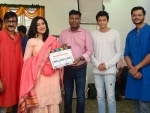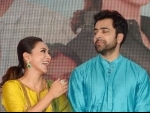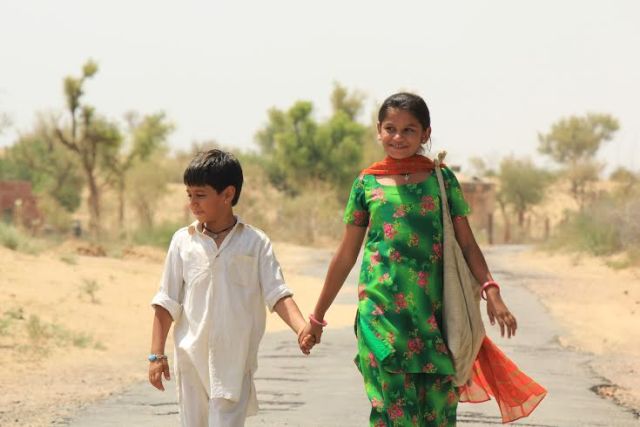
Nagesh Kukunoor's magical journey of hope
You chose Rajasthan as the backdrop for Dhanak. You did the same in your earlier film Dor too.
I love Rajasthan not only because of the beautiful landscape but also because of the culture it represents, the folk singers in their colourful costumes and unique musical instruments. However, shooting in Rajasthan is difficult and challenging. The sandy air makes your skin sizzle when temperatures rise to over 50 degrees. I had two kids acting in Dhanak, one eight and the other ten, and I had to take care that they did not fall sick.
What is Dhanak is all about?
It’s a story about a sister Pari and her blind kid brother Chhotu. Pari believes that her brother’s blindness can be cured through surgery because he was not born blind. They set off on a journey through Rajasthan to meet Shah Rukh Khan who is in Jaisalmer for a shoot and is also attending an eye-camp. Pari is convinced that Shah Rukh would give the money for Chhotu’s eye surgery. The journey is the film and the film is this journey.
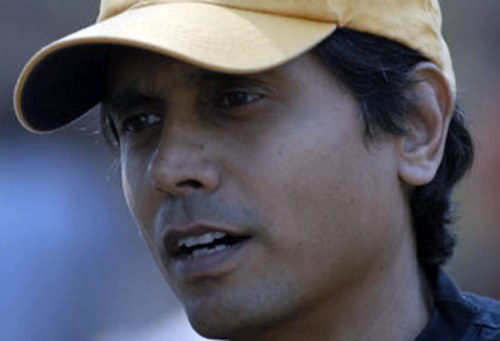
What was the trigger for the story of Dhanak?
Long before this film, a friend had suggested a commercial featuring a blind boy and his sister. The commercial never happened but years later, I happened to come across a photograph of a boy and his sister walking across a desert landscape and the idea of extending this single image into an extended screenplay for a full-length film took root.
Dhanak is a fable that tells the story about a magical journey the brother-sister duo make across the desert. I wanted to remind myself and the audience that there is still goodness left in the world. I wanted to go back to the India I grew up in, where people trusted each other. Dhanak reinforces the belief that in a world full of cynicism, life can have a happy ending.
Dhanak bagged the Crystal Bear Grand Prix for Best Children's Film at the 65th Berlin International Film Festival and some more. How do these international awards impact on you?
I had promised myself that I won’t go to Berlin unless my film was in competition. If your film is not in competition, you are just a tourist. But the film was included in the Kplus section. Whether your film wins an award or not, screening at a festival underlines that the film is important and attracts notice. Others begin to take you and your film seriously. But the Berlin award was mind-blowing. I could hardly believe that Dhanak was the only Indian film selected for Berlin which gets around 3000 entries from across the world.
How did you manage to handle these two kids, Hetal Gada, Krrish Chhabria?
They are the most adorable kids to work with. Hetal is an experienced actor while Krrish who plays Chhotu is very talented. They had the most amazing positive attitude. I personally went to people’s homes to audition. A hundred kids were auditioned. There were two or three different layers of auditions and finally these two kids were selected. I don’t find working with kids tough. They were given a specific call time. Thankfully, they are free of mood swings and were well-behaved on the sets. I always talk to the kids before the shooting begins and only then begin work.
You have tackled disability in very young people in two of your films, Iqbal and Dhanak. Are you specially inclined towards portraying physically challenged people in your films?
Not really, but I personally feel that physically challenged people and their problems have not been portrayed properly in our films. My idea is to underscore their strengths rather than their lacking. Iqbal was a very talented cricketer. Chhotu is like any normal naughty boy and sings very well. Basically there’s no difference between him and a boy with normal vision. My focus is not on the disability but about characters with dreams that physically able people have too. In real life, differently abled people hardly talk about their disabilities. That’s what I wish to emphasise, that they are as normal as we are and in some sense, even more.
What role Shah Rukh Khan has in the film?
Shah Rukh Khan is not there in my film. He is more a dream, a fantasy who becomes a God-like figure for Pari, a great fan of Khan, who actually begins to believe that he can fund the eye surgery of her little brother. When the surgery actually happens, she continues to believe that Shah Rukh made it happen. I also wished to explore the actor as the myth that runs across the mass audience in India who have only seen him in his films or in posters and commercials and might have never seen him in real life. This happens with all Bollywood super stars. Chhotu is a fan of Salman Khan and this sometimes becomes a point of conflict between the siblings.
How do you take it when some of your films are not appreciated by the audience?
It is disappointing for any director if the audience does not receive a film well. After all, I make films for the audience and not for myself. I was disappointed when Lakshmi was not liked by the audience. However, a director has no control over the audience’s reaction. One can’t stop making films because one film didn’t quite make it. I enjoy the very process involved in making films and I don’t think at that point of time whether my audience would like it or not.
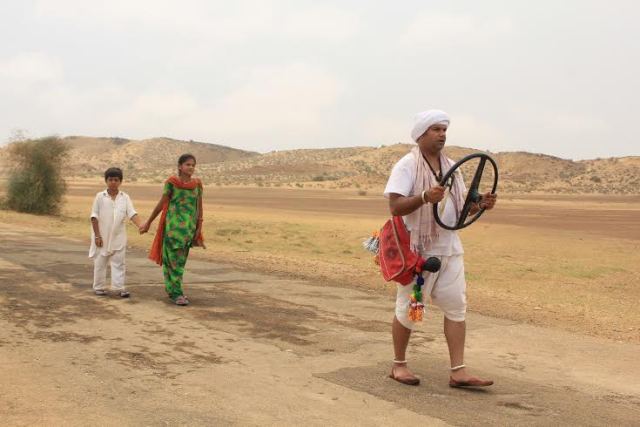
Support Our Journalism
We cannot do without you.. your contribution supports unbiased journalism
IBNS is not driven by any ism- not wokeism, not racism, not skewed secularism, not hyper right-wing or left liberal ideals, nor by any hardline religious beliefs or hyper nationalism. We want to serve you good old objective news, as they are. We do not judge or preach. We let people decide for themselves. We only try to present factual and well-sourced news.





